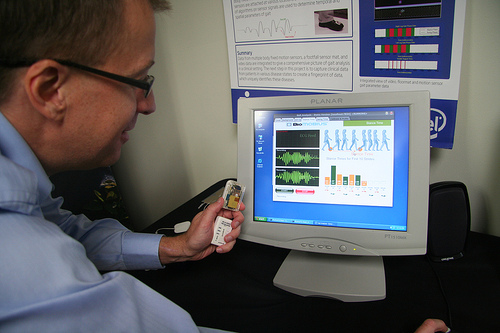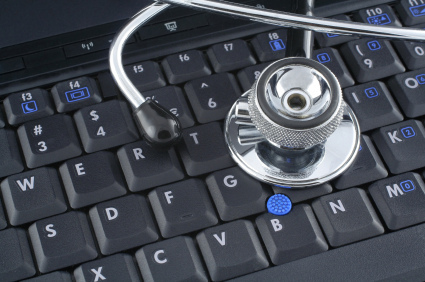Technology has consistently been a driver of change in health care, but make no mistake, the industry is about to experience some major disruption. When the dust settles, the entire health care system will be more efficient, more accurate, and likely cost a great deal less to execute.
Below are four ways technology is positively disrupting health care.
1. Information Sharing

Image via Flickr by IntelFreePress
Many health care information systems are completely out of date. Physician offices and treatment centers still have fax machines and paper files. These information sharing and storing methods prove inefficient and time-consuming, and many practices are also not sharing as much health information as they could with other health care providers.
Whether that information improves diagnoses and treatment effectiveness for a single patient or assesses an epidemic possibility, sharing information has the potential to disrupt health care in significant ways. Doctors could get access to patient files easily to see which treatments work, essentially creating a massive research database.
2. Self-Management
At its core, technology in health care is about saving lives and preserving health. Self-management and data collection are two key elements in this mission. Whether people are tracking the miles they run or their blood glucose levels, recording this information can allow them to adjust their behavior to get the readings they want.
This data can also be integrated with physician databases. The integration may offer more accurate and complete information for consideration during a doctor’s visit, and data access can also largely take doctors out of the equation. In the case of diabetes, for example, patients wouldn’t necessarily need to involve doctors for insulin management unless something goes terribly wrong.
3. Point-of-Care (POC) Technology

Image via Flickr by jfcherry
Diabetes is also one example of the way point-of-care (POC) technology can change an industry. Traditionally, patients with diabetes had to have their blood sugar tested by a doctor and receive prescription insulin based on that information. Now, home blood sugar monitors enable people to test themselves at home, often in seconds. In turn, patients can adjust their insulin accordingly. As technology progresses and the depth of information collected grows, more opportunities will exist for POC technology to revolutionize health care.
4. Pharma-Free Care
Technology could help some people manage psychological conditions from the privacy and convenience of their own homes. While some psychological conditions are best treated by professionals, others such as cognitive behavioral therapies and sleep medicine could be administered online. This option presents a cost-effective alternative to pharmacological solutions and some psychological treatments. At the same time, the lower price makes the technology accessible to more people and could increase the number of people who receive help for behavioral and psychological conditions.
As technology becomes an increasingly significant part of daily living, its impact on health care is only going to increase. Expect demand for information technology professionals to increase, especially those who develop databases, management information systems, and create applications. While certain issues will need to be mitigated before technology disrupts the industry, it is only a matter of time before technology changes health care, again.
